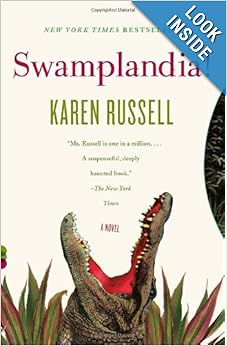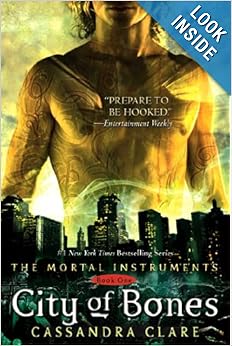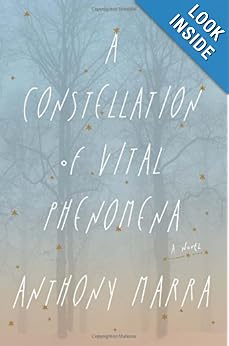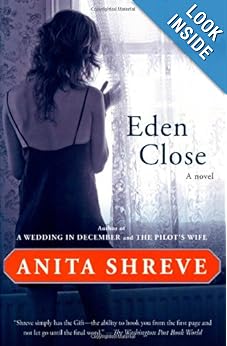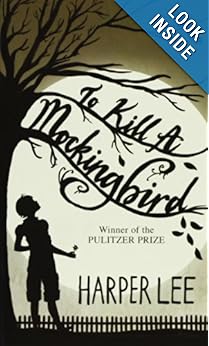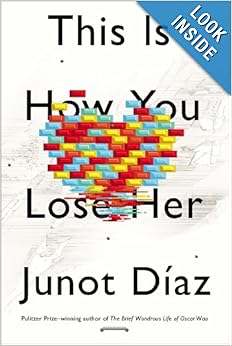 "About a month later, she started making the sort of changes that would have alarmed a paranoid nigger. Cuts her hair, buys better makeup, rocks new clothes, goes out dancing on Friday nights with friends. When I ask her if we can chill, I'm no longer sure it's a done deal. A lot of time she Bartlebys me, says, No, I'd rather not. I ask her what the hell she thinks this is and she says, That's what I'm trying to figure out. I know what she was doing. Making me aware of my precarious position in her life. Like I was not aware." "You try every trick in the book to keep her. You write her letters. You drive her to work. You quote Neruda. You compose a mass e-mail disowning all your sucias. You block their e-mails. You change your phone number. You stop drinking. You stop smoking. You claim you're a sex addict and start attending meetings. You blame your father. You blame your mother. You blame the patriarchy. You blame Santo Domingo. You find a therapist. You cancel your Facebook. You give her the passwords to all your e-mail accounts. You start taking salsa classes like you always swore you would so that the two of you could dance together. You claim that you were sick, you claim that you were weak - It was the book! It was the pressure! - and every hour like clockwork you say that you're so so sorry. You try it all, but one day she will simply sit up in bed and say, 'No more,' and 'Ya,' and you will have to move from the Harlem apartment that you two have shared."
"About a month later, she started making the sort of changes that would have alarmed a paranoid nigger. Cuts her hair, buys better makeup, rocks new clothes, goes out dancing on Friday nights with friends. When I ask her if we can chill, I'm no longer sure it's a done deal. A lot of time she Bartlebys me, says, No, I'd rather not. I ask her what the hell she thinks this is and she says, That's what I'm trying to figure out. I know what she was doing. Making me aware of my precarious position in her life. Like I was not aware." "You try every trick in the book to keep her. You write her letters. You drive her to work. You quote Neruda. You compose a mass e-mail disowning all your sucias. You block their e-mails. You change your phone number. You stop drinking. You stop smoking. You claim you're a sex addict and start attending meetings. You blame your father. You blame your mother. You blame the patriarchy. You blame Santo Domingo. You find a therapist. You cancel your Facebook. You give her the passwords to all your e-mail accounts. You start taking salsa classes like you always swore you would so that the two of you could dance together. You claim that you were sick, you claim that you were weak - It was the book! It was the pressure! - and every hour like clockwork you say that you're so so sorry. You try it all, but one day she will simply sit up in bed and say, 'No more,' and 'Ya,' and you will have to move from the Harlem apartment that you two have shared."
I love Junot Diaz like Oscar Wao loves cake and comic books. Love him. LOVE HIM. I saw him at a really fun event in town (take that everyone who is like "blah blab blah Las Vegas has no culture") and that allowed everything I felt for him as an author to turn into a Mega Crush - to the point that I COULD NOT GET MY BOOK SIGNED BECAUSE I FELT TOO STUPID. Yup. My heart broke when I received a text message from a grad student colleague.
Him: You like Junot Diaz, right?
Me: I love him. LOOOOOOVEEEE him.
Him: I don't think you're going to love him after you read his new book. A story from it was published in the New Yorker. It's called "The Cheater's Guide to Love."
I didn't read the story right then - I didn't want to get it out of context. Surely there was a reason for this? I waited for the book to come out. Then I waited desperately for the paperback to come out because hardcovers are not in my budget, even for Mr. Diaz.
This book is a collection of interconnected short stories about our standby Diaz character: Yunior. We are back with Yunior, and Rafa, and their crazy mom, and their shitty dad, except this time Yunior is an adult - as the reader who is growing up with him, it's nice that we are in the same place in our lives: professionally established, looking for love, ready to get serious, right in that age bracket where people are getting pregnant both on purpose and on accident. Yunior's voice is perfection, and much like Diaz's own, it is a mix of ghetto and incredibly well educated. The fact that our narrator uses 'nigger' just a breath away from a Melville allusion is completely and utterly satisfying for me. Although we never see Yunior in his campus life at Rutgers or his professional life as a university professor in Boston, these little moments reveal this complex character who obviously code switches between his two different worlds, but has developed his own perfect language in his head. As someone who drops enough F-bombs in real life that people are often incredulous that I am a teacher of children, I appreciate the depiction. I really do want to talk to Yunior about his usage of the n-word though, and after some googling to satisfy my own curiosity about Diaz's reasoning (see below), I hope that this is a conversation that Yunior has some day in some book. A man who is capable of blaming the patriarchy for his infidelity can certainly talk about his African-diaspora-Dominican-claim to the n-word, and what he is trying to establish by using it.
The stories are tied together by the common motif of infidelity, but it would be selling them short to say this is a book about cheating. This is a book about immigration, loneliness, learning patterns of behavior from your family, loving someone and completely fucking it up, and knowing you're fucking it up, and not being able to stop yourself. It's a study in the psychology of what makes a really smart, really talented, really lucky person act like a damn fool.
It's hard to describe how Yunior can be such a sympathetic character while also being such a ______ (offensive word taken out because I'm not ready to have a conversation about whether it's okay to use a super offensive Spanish word if I am half-Mexican even though I certainly did not grow up in a neighborhood or family that used that word, but I spent four years teaching kids who did?).
Perhaps it's as simple as: the writing is beautiful and it's from him. Maybe it's because, outside of the cheating, he captures the complexity of any relationship and the mistakes that everyone makes. We take each other for granted. We don't go the extra step. We handle things without care. The second excerpt above is absolutely my favorite section of the book: the desperate ways that people try to put back together a relationship that is already too broken. It is utterly childish to think that a Neruda poem or a salsa class can save such massive betrayal - but people try those things all the time. We see it in movies and songs and TV shows and music video narratives. We want to believe that everything can be FIXED, that hurts are never so devastating that they cannot be undone with something as simple as a sonnet.
I do not love you as if you were salt-rose, or topaz,
or the arrow of carnations the fire shoots off.
I love you as certain dark things are to be loved,
in secret, between the shadow and the soul.
I love you as the plant that never blooms
but carries in itself the light of hidden flowers;
thanks to your love a certain solid fragrance,
risen from the earth, lives darkly in my body.
I love you without knowing how, or when, or from where.
I love you straightforwardly, without complexities or pride;
so I love you because I know no other way than this:
where I does not exist, nor you,
so close that your hand on my chest is my hand,
so close that your eyes close as I fall asleep.
"Let’s talk then about the kinds of words that are okay to use and the kinds that aren’t. You use the word “nigger” a lot in this book [Oscar Wao]. Have you gotten any pushback from people about being a Latino writer and using that word?
It's one of those things, I mean -- there's a ton of child rape in this book too. Does that mean I'm a child rapist, I endorse child rape? I mean, the word nigger exists in the world. And some people aren’t okay with a Latino writer using it, and you know what? That's really cool! That's the difference that we're talking about, is it real life or is it art? When it comes right down to it, so child rape should only be represented by child rapists? Or if you represent child rape in a book, does this speak to your relationship with child rape? Or is there something far more complicated going on, with the concept of representations, or the concept of deploying "taboo" language and who deploys it? I don't ever remember Oscar calling anybody nigger, or Lola using that word – it's coming from Yunior specifically.
It's easy to assume that because there's one person in a culture or group using that word, that everyone's using it. But I find that part of what the book is about is about who uses what language and how they're using it. There is something about the way Yunior uses language that is worth really interrogating. I totally understand people's political decisions about language, vis-a-vis their decisions about their practice and their life, but I just feel like when issues of representation are up in the air, you have to use a much wider palette. We're trying to talk about the world. I guess this isn't an essay about for or against the "n word", it's sort of a larger argument about the world, so that everything in the world, positive and negative, should find its way into a book. There's something surprisingly reductive about how people are always trying to scratch books out of existence. That means we've got to get of almost everything by Mark Twain!
I mean, after all, Malcolm X is of Caribbean descent. He's not purely African American descent, if I remember correctly, part of his family is either from St Lucia or St Croix. [Editor's note: Malcolm X's mother was born in Grenada, in the southeastern Caribbean sea]. So he shouldn't use it either, right?!
What I find interesting is that I'm neither for nor against who should use certain words or not. But there's a tremendous amount at stake in trying to control how language is used."
